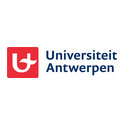In short
Does a greener school environment increases the health and mental well-being of children? And can this add to reducing health inequality among children? These questions are the core of our B@SEBALL project. The gained knowledge will be a benefit to school/playground management and design, as well as relevant policy, education and family practices.
Project description
Biodiversity at school environments benefits all (B@SEBALL) investigates the health contribution of biodiversity in the school environment, and how this is distributed among children with different socio-economic and cultural backgrounds. According to the biodiversity hypothesis, contact of people with biodiversity is important for human health, especially in childhood. Residential green areas and their health benefits have thus received increasing attention. Vulnerable population groups lack both individual green space (such as gardens) and community resources (public green places). This inequality is exacerbated by the findings that certain social groups are less likely to visit green spaces or use them for active recreation. This observation heightens the importance of green school environments. One of the current research challenges is unravelling the importance of the specific quality of nature and biodiversity. Enhanced immune functioning emerges as one promising candidate for a central pathway between nature and health.
B@SEBALL investigates how biodiversity in the school/playground environment can positively affect children’s health (asthma and allergy prevalence) and mental well-being and how this can be linked to human microbiome diversity. B@SEBALL will also investigate the opportunities for reducing health inequalities among children via biodiversity at school environments. Further, B@SEBALL will investigate how school/playground management and design can benefit from this knowledge, as well as relevant policy, education and family practices. Through its partners, B@SEBALL can build on established school projects aimed at greening playgrounds: Flanders (MOS) and Wallonia & Brussels (GoodPlanet Belgium).
Sciensano's project investigator(s):
Service(s) working on this project
Partners







